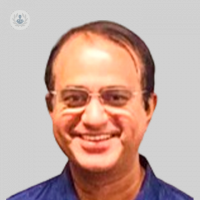Paediatric upper gastrointestinal (GI) surgery refers to surgical interventions in children that address conditions affecting the upper part of the digestive tract, including the oesophagus, stomach, and the first portion of the small intestine. These surgeries are often necessary to treat a range of congenital and acquired conditions that can significantly impact a child's digestion, nutrition, and overall well-being.
Some of the most common conditions requiring upper GI surgery in children include gastroesophageal reflux disease (GERD), oesophageal atresia, pyloric stenosis, and achalasia.

GERD
Gastroesophageal reflux disease (GERD) is one of the more frequently seen conditions in paediatric patients. While mild reflux is common in infants, severe cases may require surgical correction, particularly if they result in complications like failure to thrive, recurrent lung infections, or oesophagitis. A procedure called fundoplication is often performed to strengthen the lower oesophageal sphincter, preventing the backward flow of stomach contents into the oesophagus.
Oesophageal atresia
Oesophageal atresia, a congenital condition in which the oesophagus does not properly connect to the stomach, often requires early surgical intervention. Babies born with this condition are typically unable to swallow and may develop life-threatening complications without timely surgery. Surgeons will repair the oesophagus to allow normal feeding and digestion.
Pyloric stenosis
Pyloric stenosis, a condition that affects newborns, involves the thickening of the muscles in the pylorus, the lower part of the stomach. This condition causes severe vomiting and can lead to dehydration and weight loss. A surgical procedure called pyloromyotomy is performed to split the muscle, allowing food to pass from the stomach into the intestine.
Achalasia
Finally, achalasia, a rare condition where the muscles of the oesophagus fail to move food toward the stomach, may also require surgical correction. Treatments for achalasia include balloon dilation or a surgical procedure known as Heller myotomy to help the oesophagus function more effectively.
Paediatric upper GI surgery is complex but can significantly improve a child’s quality of life. With early diagnosis and intervention, many children go on to lead healthy, normal lives. Parents should work closely with their paediatric surgeon to understand the condition and the best treatment options for their child.



